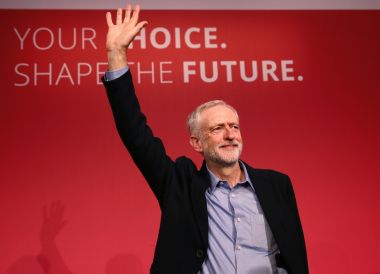Corbyn faces rebellion over bombing ISIS in Syria
British bombing of ISIS targets in Syria is becoming increasingly likely as half the shadow cabinet are prepared to rebel against Jeremy Corbyn and vote with David Cameron in favour of airstrikes, the Sunday Times reports.

The Prime Minister has previously proposed extending British action against ISIS which is currently limited to Iraq but the rise of Corbyn, who opposes the strikes, to Labour leader made this seem unlikely. However Corbyn is facing a mutiny as it appears half his new shadow cabinet are willing to back the Conservatives, providing Cameron comes up with a coherent plan.
"They [senior Labour figures] were much more impressed by the need for action than when we last had a vote in 2013," a member of the shadow cabinet said in the Sunday Times.
"There is a majority in the Commons for airstrikes in Syria if Cameron has a proper plan for targeting ISIS. You would get half the shadow cabinet supporting it."
Cameron is expected to call for a vote next month on extending military action in Syria.
The split comes as a serving general said there would be strikes and mass resignations from senior army officials if Corbyn became prime minister.
"The army just wouldn't stand for it," he said. "The general staff would not allow a prime minister to jeopardise the security of this country.
"You can't put a maverick in charge of a country's security."
Corbyn has voted against 13 counter-terrorism bills since the Prevention of Terrorism Act in 1984, a dossier passed to the Sunday Times revealed. The act made membership or active support of the IRA illegal.
Additionally he and shadow chancellor John McDonnell were among only 3 MPs to oppose the Terrorism Act 2000. The act has allowed for the detention of several of Britain's most dangerous jihadists.
Labour responded to the revelations by insisting it supported laws to prevent terrorism but wanted to ensure against division and victimisation.
"We are committed to playing a constructive role with the government in ensuring the authorities have the powers to act with speed to keep people safe and to prevent terrorism," a spokesman said.
"But those powers need to be limited to what is necessary and care needs to be taken to avoid fuelling division and a sense of victimisation as the government has been warned by its own independent reviewer of terrorism legislation."











